This content is archived from the Feline Nutrition Foundation
 Whether you are new to the idea of raw food for cats or have been feeding kitty a raw cat food diet for years, you've got questions. Feline Nutrition members and visitors to the website have asked us some great ones over the years. We post the answers here to help everyone. From practical to esoteric and from basic to advanced, we find the right person to answer.
Whether you are new to the idea of raw food for cats or have been feeding kitty a raw cat food diet for years, you've got questions. Feline Nutrition members and visitors to the website have asked us some great ones over the years. We post the answers here to help everyone. From practical to esoteric and from basic to advanced, we find the right person to answer.
There are many reasons that people decide to question what they have been feeding their feline family member. Too often, it is because a health issue has arisen and diet is a major factor. Many people become aware of the questionable ingredients in highly-processed cat foods and are looking for a better way. People hear about raw cat food from their friends that are already feeding their obligate carnivores a bio-appropriate diet. Almost everyone who switches their cats ends up becoming a bit of an advocate. It's hard not to after witnessing all of the benefits.
These questions help us to learn what issues concern people both new and experienced with raw cat food diets. Beginners can feel overwhelmed as they look at cat food in a whole new light. We hear time and again from beginners that they spend considerable time researching raw food for cats before deciding to make the switch. We want to make learning about cat nutrition easier by putting a wealth of information in one place to help you and your kitty in this journey.
 Answers: What Exactly is an 'Obligate Carnivore?'
Answers: What Exactly is an 'Obligate Carnivore?'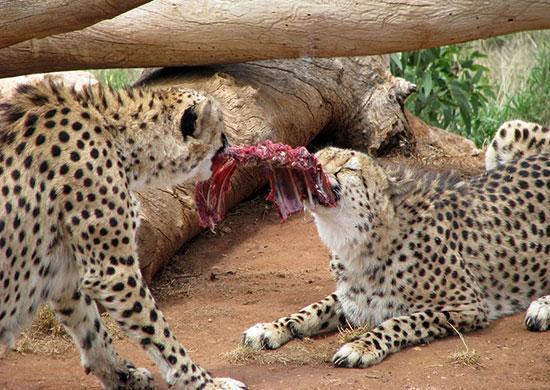
I have started Tedders on a raw cat food diet and I've seen a lot of improvement in his health and energy levels. When I was investigating what I should be feeding him, I kept seeing cats described as obligate carnivores. What exactly is an obligate carnivore and how is it different from a regular carnivore? Are there other obligate carnivores besides cats?
People refer to cats as obligate carnivores when they are trying to emphasize the fact that cats are a little different than many other meat-eating predators. Continued
 Answers: What Dry Food Does to Your Cat's Appetite
Answers: What Dry Food Does to Your Cat's Appetite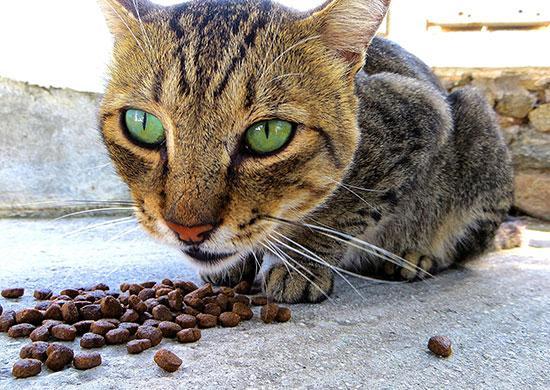
I've been feeding my cat a vet-recommended premium dry food diet since she was eight weeks old. She is two years old now and I've noticed she's overweight and seems to not be interested in playing or exercising at all. She is also constantly hungry. I don't think that's normal. Please help!
This is a question vets get asked over and over again. It raises an important issue with regard to how suitable carbohydrates are in commercial dry cat food. Continued
 Answers: Why Won't My Cat Eat?
Answers: Why Won't My Cat Eat?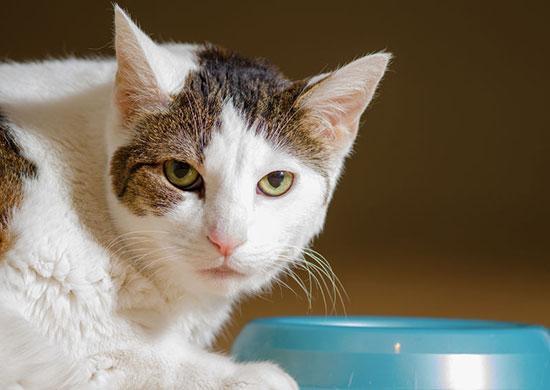
I have a ten-year-old cat who seems to be very healthy. But, just yesterday she refused her food. What can cause her to lose her appetite? Should I be worried that there's a problem?
A cat may choose not to eat for many different reasons: nausea, pain, a mechanical obstruction, an inability to smell the food, a foreign substance such as a medication or a supplement in the food, a sudden change of diet or a focus on another physiologic process, such as breathing. Continued
 Answers: Who Were Pottenger's Cats and Do They Matter?
Answers: Who Were Pottenger's Cats and Do They Matter?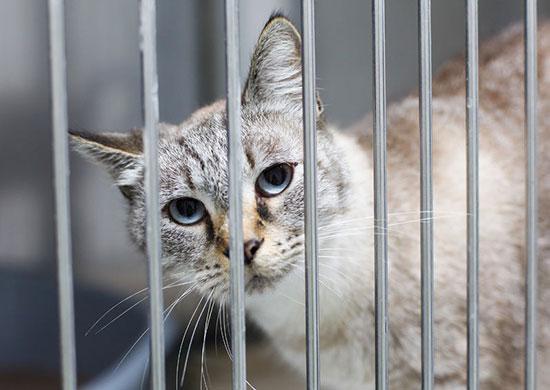
I am new to the idea of feeding raw food to cats, so I have been trying to learn as much as I can on the subject. I have seen references to a study done a long time ago by a Dr Pottenger. Is this study still useful?
If you are reading up on raw food for cats, at some point the name Pottenger will come up. The Pottenger studies done in the 1930s are sometimes cited as proof that raw food for cats is superior to a cooked meat diet. In this article, I will explain the basic studies Dr Pottenger did and discuss whether they are relevant to feeding cats raw food today. Continued
 Answers: To Grind or Not to Grind Raw Cat Food?
Answers: To Grind or Not to Grind Raw Cat Food?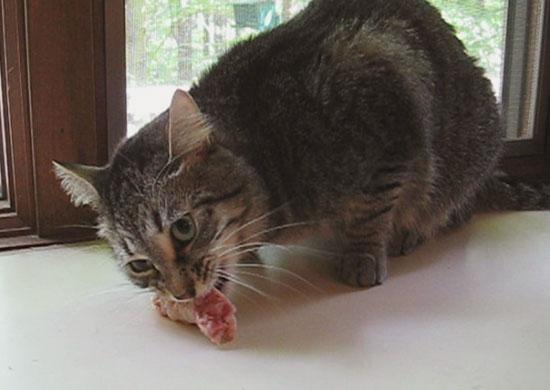
Being new to feeding raw food for cats, I have noticed that some people say you should feed meats whole and some say that you should grind it up. Why is it most often fed as ground meat diets? Surely cats can eat whole meats because that's what they would get in the wild when they eat prey animals.
Frequently, we get asked why raw cat food diets should be ground. The answer is: they don't have to be. There are different ways to feed raw food for cats. Continued
 Answers: What Dry Food Does to Your Cat's Teeth
Answers: What Dry Food Does to Your Cat's Teeth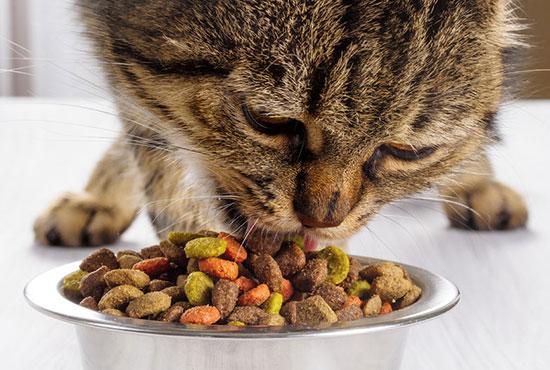
For years, I've been feeding my cat the commercial dry diet my vet recommended. In the last visit to the clinic, however, he told me she was developing tartar on her teeth, her gums were inflamed and she needed to go under anesthesia for a dental cleaning. How can this be? I've followed his instructions verbatim. I feel like there's something missing here. The fact that we humans have taken felines with us to live under a roof doesn't change their marvelous biology and evolution as true, obligate carnivores. Continued
 Answers: What Dry Food Does to Your Cat's Fur
Answers: What Dry Food Does to Your Cat's Fur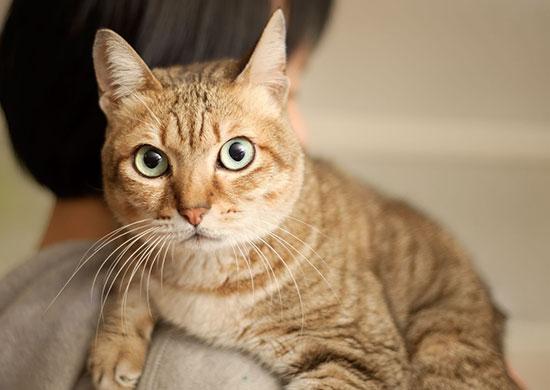
My cat is two years old, a short-hair tabby who excessively sheds all of the time. I took him to the vet. After several tests, the doctor says he is completely normal. This is bittersweet to me because I'm happy he's a healthy cat, but worried that he sheds so much. He is eating only a premium brand of dry food the vet recommended. Why does he shed so much?
I think this is one of the most common questions vets get asked about in daily practice. The process by which cats change or renew their coat is called shedding. It is a continuous and natural process in a cat's life. Continued
 Answers: What Dry Food Does to Your Cat's Pee
Answers: What Dry Food Does to Your Cat's Pee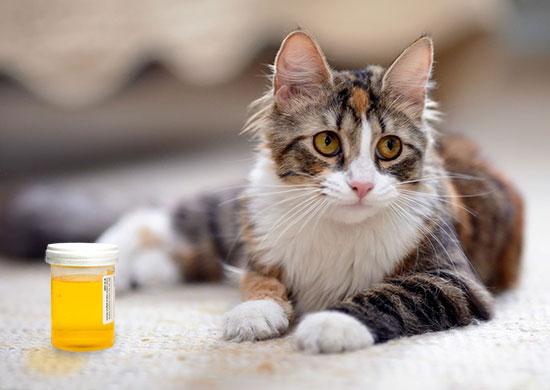
I've been feeding my cat premium dry food all of his life, as our vet recommended. He is now 15 months old and, all of a sudden, he developed urinary blockage. After a very painful and costly procedure that included an IV catheter, blood work, anesthesia, urethral catheterization, bladder lavage and pain medication, he finally recovered and got back to normal life. The vet recommended that I now feed him a dry kibble prescription diet. I'm very confused right now because I found out that dry food can lead to urinary problems. Is this correct? Please help. Continued
 Answers: What Dry Food Does to Your Cat's Gut
Answers: What Dry Food Does to Your Cat's Gut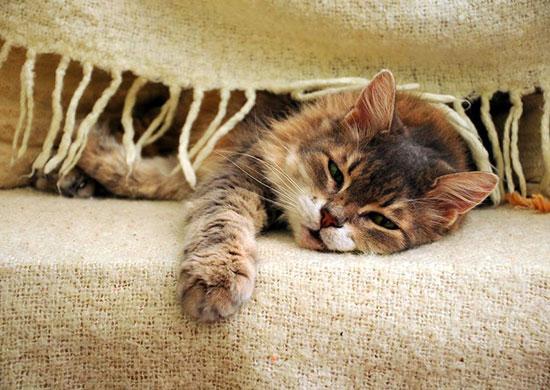
I want to switch my cat over to a raw food diet, but, in the meantime I'm still feeding her dry food. I notice she throws it up pretty often, almost always soon after eating it. What is it about dry food that makes cats throw it up? The barf looks almost the same as when it went in!
"Why did my cat throw up?" is one of the most common questions vets get asked. Vomit is the first defense mechanism by which cats protect themselves from the absorption of substances that could harm them. Continued
 Raw Food Essentials and Fun Stuff, Too!
Raw Food Essentials and Fun Stuff, Too! 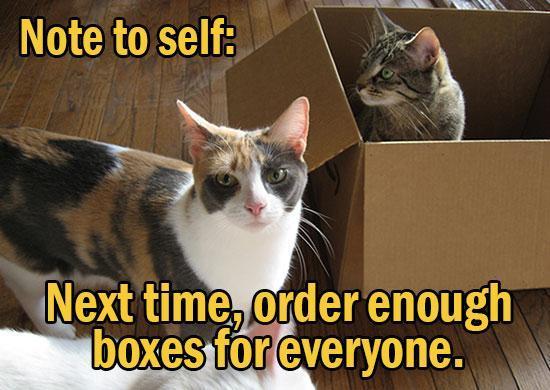
The Feline Nutrition Foundation is dedicated to educating people about the benefits of feeding their cats the right kind of diet. We want science-backed information to be freely available to everyone. That's a core part of our mission. We emphasize the freely part. Membership is free, all the information we offer is free and we don't have ads cluttering up the site. Everyone associated with our education and advocacy work is a volunteer. We are passionate about helping cats. But, passion doesn't pay the bills. Continued
Answers: One More Reason to Ditch Dry Cat Food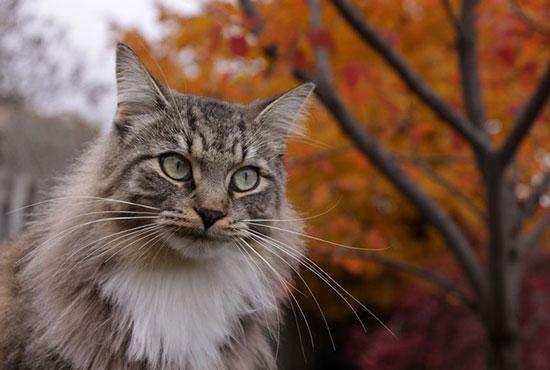
I'm new to cat ownership. Recently I adopted two orphan kittens from a local shelter. I took them in for a complete check-up. The veterinarian encouraged me to feed my cats a raw meat diet because of the possibility that dry kibble may contain a substance called aflatoxin, which could be harmful to my kitties. Can you explain to me what aflatoxins are?
The information this doctor gave to you is correct and it demonstrates she is concerned about the health of your kittens. Continued
Answers: Do Cats Need Dietary Fiber?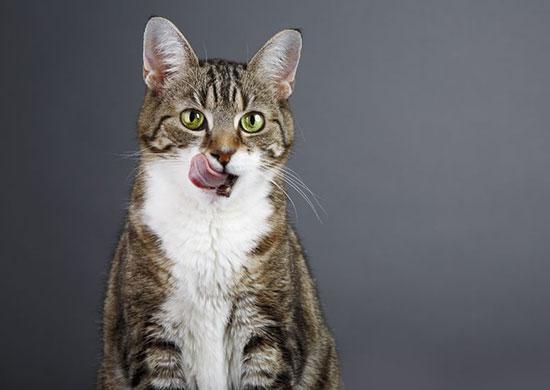
Do cats need fiber in their diet? Being strict meat-eaters, how would they get it in their natural diet, since they wouldn't be eating plant material?
Dietary fiber is the indigestible portion of food derived from plants.¹ There are different types of plant-based fiber. There are soluble and insoluble fibers as well as rapidly-fermentable and slowly-fermentable fibers. Soluble fibers are also rapidly fermentable. These fibers, which include pectins and gums, can act like a gel and draw water into the colon. Continued
Answers: Cats in a Bind over Phosphorus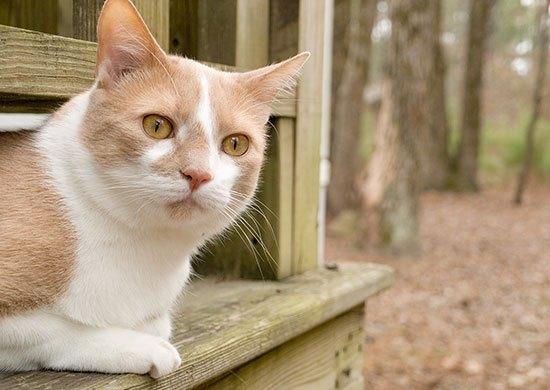
My cat is in the early stages of kidney disease. My vet said he wanted to reduce her phosphorus intake. Since I don't like the prescription diets and my cat, who eats a raw diet, wouldn't touch them anyway, what are my options to accomplish a reduced phosphorus diet?
Phosphorous is present in most foods, but meat and dairy tend to have the most. When serial blood testing reveals that a cat has declining kidney function, called renal insufficiency, phosphorous should be somewhat restricted to decrease the risk of one of the major long term effects of kidney insufficiency, secondary hyperparathyroidism. Continued
Answers: Let's Talk About Cat Barf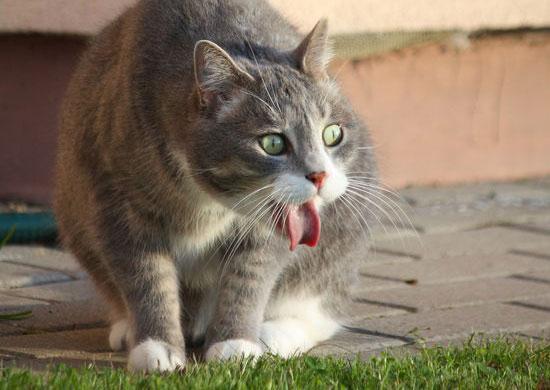
My kitties eat a raw cat food diet and sometimes barf up the food they just ate. It happens with different kinds of meat, so I don't think it's a particular food. Why do they do this and is there anything I can do to stop it? I have also caught the cats eating what's barfed up!
Many people may confuse vomiting, commonly referred to as barfing, with regurgitation. From your question it sounds as if your kitties may actually be regurgitating rather than vomiting the food. Vomiting is actually a lot more common in cats than regurgitation in my opinion. Continued
 Answers: Making Raw Cat Food Kitty-Sized
Answers: Making Raw Cat Food Kitty-Sized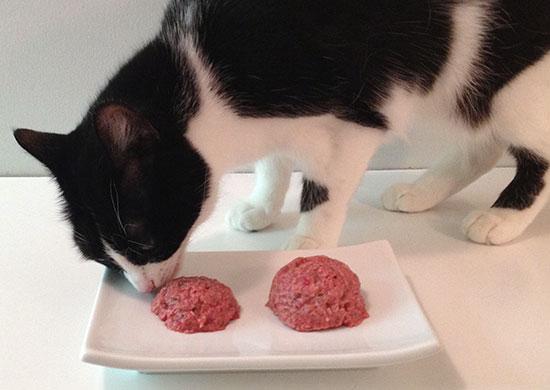
I just transitioned my kitty from dry food to a raw diet. Since she is now fed meals instead of just eating whatever she wants out of the never-ending bowl of kibble, I realize I don't know how much food to give her! Help!
We get this question a lot. There is no set amount, but there are basic guidelines as to how much to feed. How much food your cat needs is going to depend on a lot of things: age, activity level, general health, genetics and the actual composition of the food. The amounts we outline are for adult cats over one year old. Continued
 Answers: Raw Food for Cats, What About Eating Bones?
Answers: Raw Food for Cats, What About Eating Bones?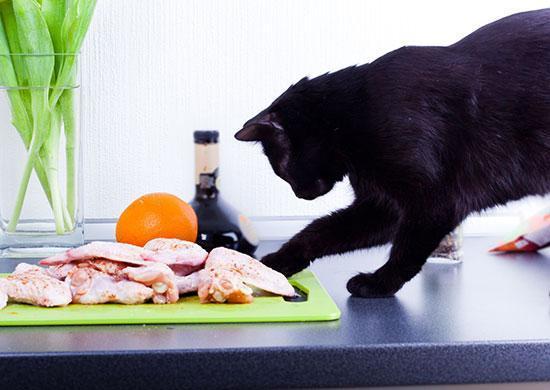
I am new to raw food for cats and I still feel a little uneasy giving my kitty meat with bones. Some of the food I feed her is ground, so the bones are in the mix. But, I have been told it is good for a cat's dental health to eat meat pieces with bones in them. What should I feed her? What's safe to give her? Also, why do you recommend feeding bones over just using a calcium supplement?
Cats are obligate carnivores. Cats living in the wild chase and kill small prey such as rodents, mice, squirrels, rabbits, reptiles, amphibians, birds, insects and small fish. Continued
 Answers: Getting Kitty to Like Chunky
Answers: Getting Kitty to Like Chunky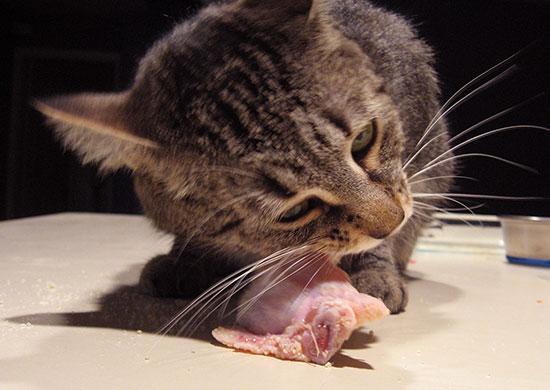
Question: I recently adopted two kittens raised on raw food, and switched my adult cat, too. They seem to like it, but will not eat the chunks. I was wondering, do you think it is okay to just make all-ground for now and start adding small chunks? Also, I remember reading somewhere that some people freeze salmon or tuna cubes for them to gnaw on. Do you think this is a good idea?
It's great that all of your kitties are on a raw cat food diet! Getting cats that are not used to chunks to eat them can be challenging. Continued
Answers: Are Exotic Meats Nutritious or a Novelty for Cats?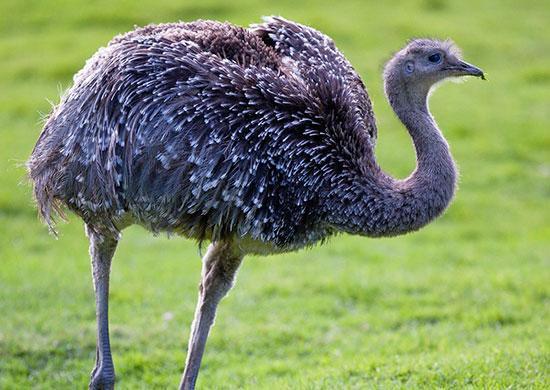
I understand that cats need to eat a variety of different meats when being fed a raw diet. Mine eat chicken, turkey, rabbit and pork. I have noticed that a few places are offering what I think of as very unusual meats, such as ostrich, emu, kangaroo, yak, llama, elk and even muskrat. Are these more exotic meats okay to add to their diet? Or are they more of a novelty that appeals to humans?
Great question. A variety of meats is crucial to a raw diet. The simplest way to think of it is that each animal consumed by your cat has a different nutrient profile, dependent on what that animal has consumed in its lifetime. Continued
Answers: Raw Food and Outdoor Cats, What About Worms?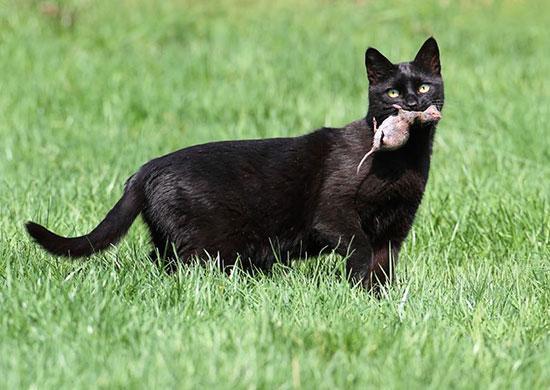
My kitty eats a raw cat food diet that includes chicken, turkey, rabbit and sometimes a little beef. She is also allowed outside and will catch and eat mice and occasionally other small rodents. Could she get worms from this wild prey? If she can, how often should we get her checked for worms?
Unfortunately, eating wild prey can result in her getting internal parasites such as roundworms, tapeworms, hookworms, trichinella, coccidia, or being exposed to protozoa, bacteria and viruses. Continued
Answers: Take a Deep Breath and Cut the Mouse in Half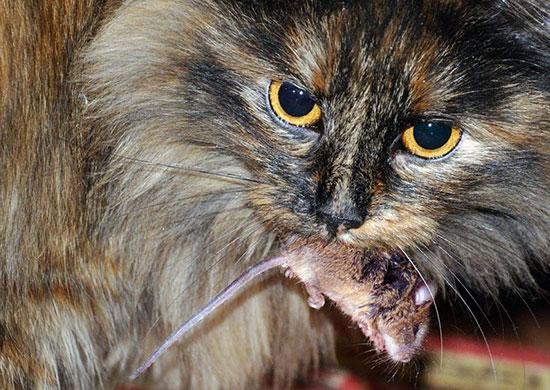
I have two new kittens and I want to add whole prey foods to their diet. I purchased some frozen mice, which I thawed out and gave to them.
They went wild over the mice, but only played with them. How do I get the kittens to take the next step and actually eat the mice?
I do have an answer for you, but you're probably not going to like it. Kittens, like many predatory animals, have to be taught to hunt, kill and eat their prey. They know some of it by instinct, as demonstrated by your kittens. Continued
Answers: The Stomach Contents of Prey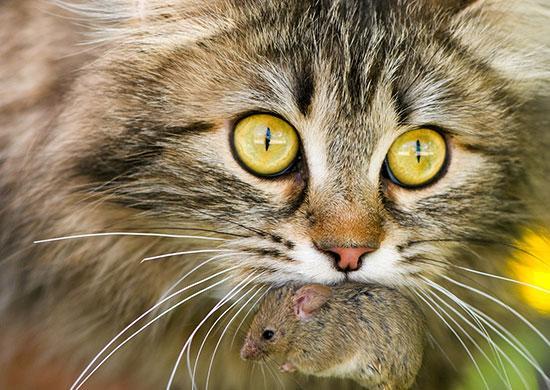
I've read that cats get nutrients and roughage from the stomach contents of their prey. I've also read that cats will avoid eating the stomach and intestines of larger prey, such as rabbits. Do cats benefit from eating the stomach contents of small prey such as mice? If so, should something be supplemented in raw cat food to make sure they are getting everything they need?
Cats tend to consume the whole of a small prey animal like a mouse, with its tiny amount of fermented stomach content. Continued
Answers: Flaxseed Oil for Kitty?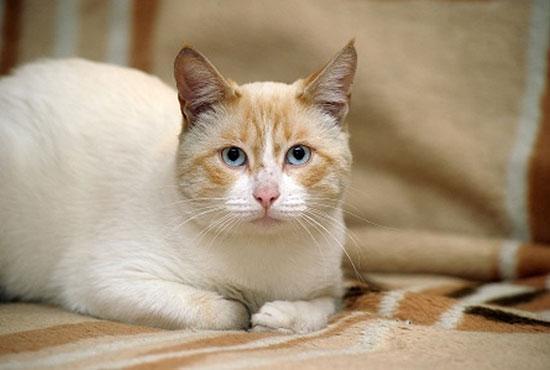
I know cats need omega-3 fatty acids, as we humans do. I take flaxseed oil supplements myself for the fatty acids they contain. Can I give flaxseed oil to my cats?
The quick answer is yes, but it's not a good idea. EFAs are one of the most common supplements given to cats and dogs. Omega-3 fatty acids tend to reduce inflammation, while omega-6 fatty acids tend to increase inflammation.¹ There are also omega-7 and omega-9, but they are not considered essential, at least for humans. Continued
Answers: Plant vs. Meat – The Protein Feud for Cat Food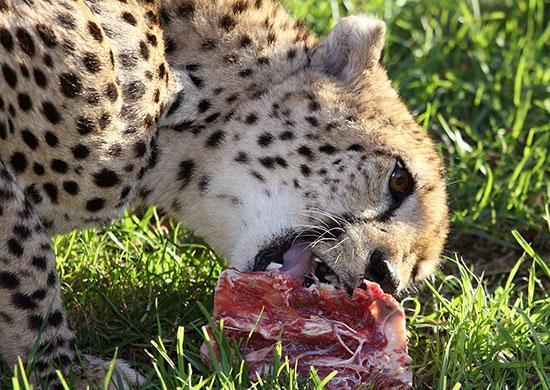
I have read that plant proteins are inferior for cats, that they need meat protein. What's the difference? Why does it matter where the protein comes from?
Not all proteins are equal. They are made up of amino acid chains, and there are a myriad of combinations that serve many functions. Proteins are structural and tissue components in the body, enzymes and antibodies, and serve messenger and transport functions. Ingested proteins will vary considerably in how well they are utilised. Continued
Answers: Kitty That Only Wants Fish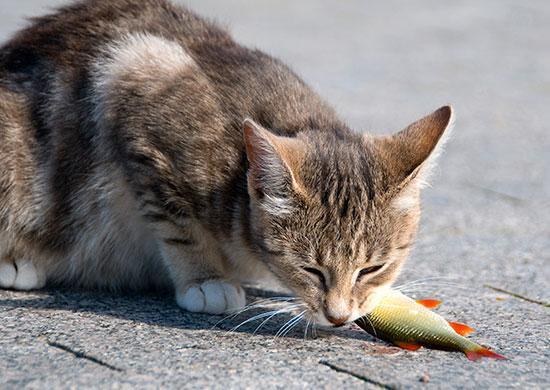
My cat only wants to eat fish! Can I feed her a diet that is mostly fish or should I try to limit how often I feed it?
Fish contains thiaminase, an enzyme that will destroy thiamine, which is vitamin B1. Thiamine deficiency causes severe neurological symptoms and can be fatal. Cats have a high requirement for B vitamins - a continual dietary source is required to prevent deficiency. It is very rare in cats consuming their natural diet, as B vitamins are plentiful in animal tissues. Continued
 Answers: Is It Okay for My Cat to Have Milk?
Answers: Is It Okay for My Cat to Have Milk?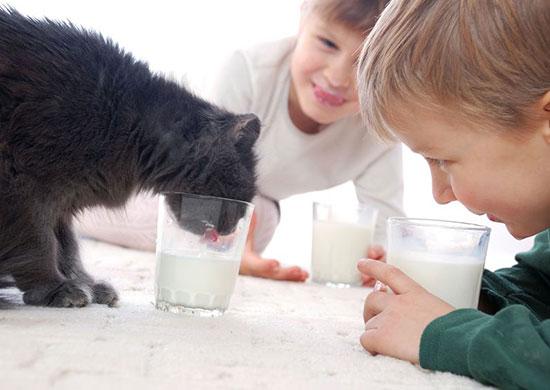
My cat absolutely loves milk. If I have cereal, she won't leave me alone! I worry about letting her have milk though, as I've been told that adult cats are lactose intolerant and could give her diarrhea. How much can I safely let her have? Would lactose-free milk be safer to give her?
Not all adult cats are lactose intolerant, but many are. Lactose intolerant cats may vomit, become gassy or "gurgly," have soft stool or even outright diarrhea after ingesting milk. If she enjoys milk and suffers none of these side-effects from it, then I consider it a healthful treat. Continued
Answers: Feed My Cat a Raw Egg Yolk?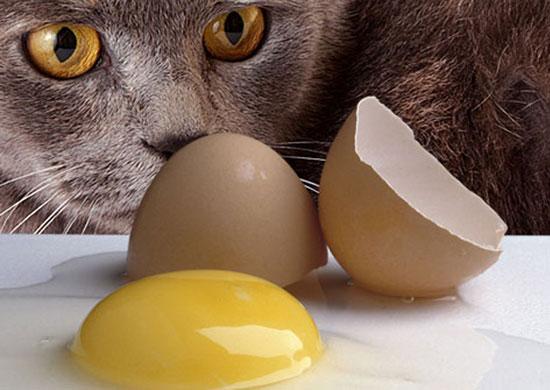
All of the raw diet recipes for cats I see contain raw egg yolks. What do they contribute to a cat's nutrition? My cat loves to eat them. Is it all right to give her a whole raw yolk occasionally? Is there really a difference between regular, organic and free-range eggs?
Egg yolks contain many nutrients, as can be seen in Table 1.¹ They are an excellent source of protein. Just one provides 21% of a cat's recommended daily intake of this nutrient. Continued
Answers: Raw Cat Food for My Cat's Mystery Allergy?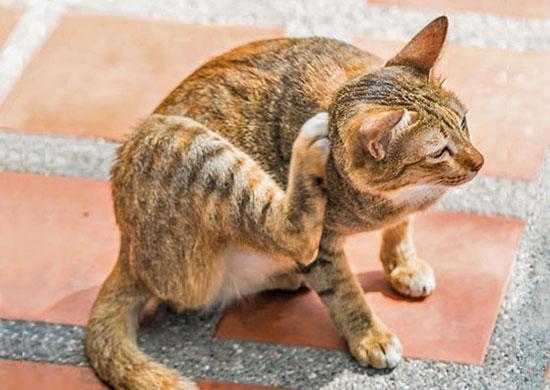
My vet told me that my cat is showing allergic symptoms, but he can't tell me what she is allergic to. We don't know if it is environmental or a food allergy. A friend told me that feeding raw cat food could help. How would raw food for cats be beneficial if we haven't figured out what is causing the allergy?
Our aim is to rebalance the immune system by switching off the cat's tendency to "overreact." Cats should be able to tolerate pollens, grasses, fleas and dust mites. Continued
Answers: Your Cat's Acid Stomach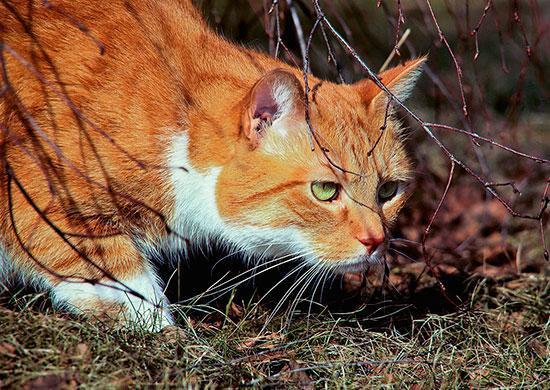
I am new to raw food for cats. I read that one of the things that makes cats different from many other mammals is their highly-acidic digestive systems. Why is having an acidic stomach important for cats? How does it help them?
Cats need a highly-acidic stomach in order to properly digest their food. Unfortunately, the carbohydrates found in many processed commercial foods make the stomach less acidic. Meat protein stimulates acidity by triggering the production of hydrochloric acid in acid-secreting cells. Continued
Answers: Cat Urine Ph, Why It Matters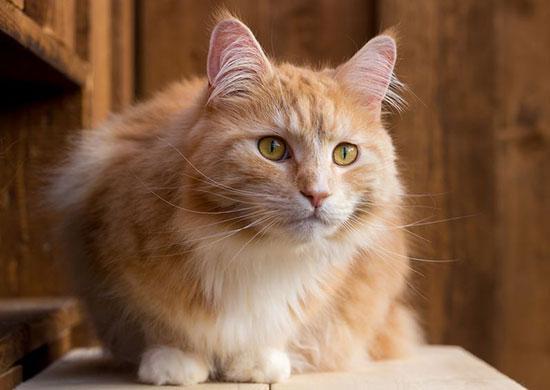
I hear a lot of talk about a cat's diet and how it affects urine pH levels. I'm getting very confused. I read that a cat's urine is naturally acidic and that some foods can cause alkaline urine, which is bad for a cat. Can you explain why the urine pH is important and what foods keep it the correct range?
"Nature knows," reads an old saying. Everything she does has a purpose or an intention. When cats consume what nature intended for them, all of their internal organs stay healthy. Continued
Answers: Kittens Go Through Teething, Too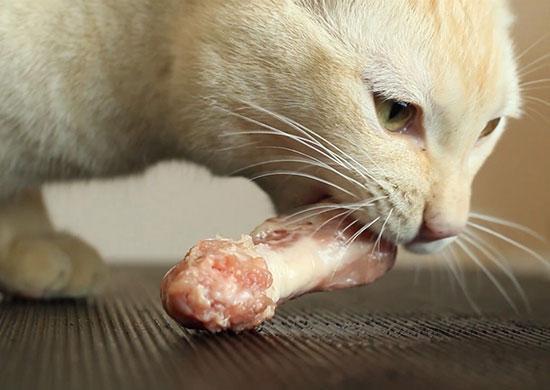
I am adopting two new kittens. I plan on feeding them a raw cat food diet, but should I wait until they are older and have their permanent teeth to start them on small meaty bone cuts? Can their baby teeth tackle chicken wings or necks?
Often, we are asked about the special dietary requirements of kittens. Ideally, your kittens should be weaned directly to a raw food diet. We suggest that as soon as your kittens arrive, they should be introduced to raw meaty bones. Continued
Answers: Raw Cat Food for All of Those Kittens!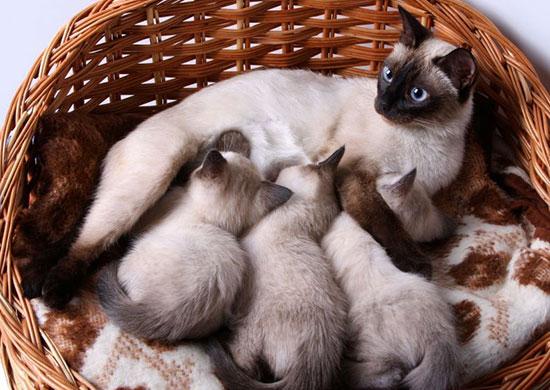
We just found out our adopted female cat is pregnant! I've been feeding her your "Feline Nutrition's Easy Homemade Cat Food Recipe," but should I add more supplements? What should I feed the kittens when they're ready to eat solid food?
The kittens can have the same raw food as their mother as soon as they are interested. They eat the same food as adults. The rather new idea of "life stage" foods is a marketing gimmick. In the wild, the diet a cat eats doesn't change as she goes through life. Continued
Answers: Why Did My Cat's Fur Get So Silky?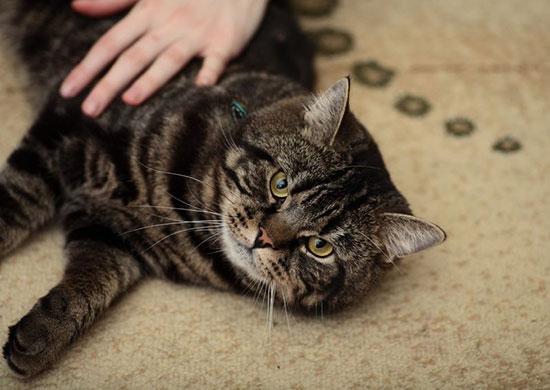
I've been feeding my kitty a raw cat food diet for a couple of months and her coat has gotten so silky! I thought her fur was soft before, but the change has been quite noticeable. What is it in raw food that has such a good effect on a cat's fur?
Many things contribute to a healthy coat in cats. Protein and fats both play a part. Raw meat-based diets supply these in a natural form she can easily digest. The change in the texture of a cat's fur can happen quite rapidly after starting down the road of proper cat nutrition. Continued
Answers: Goaltending the Cat Food Bowl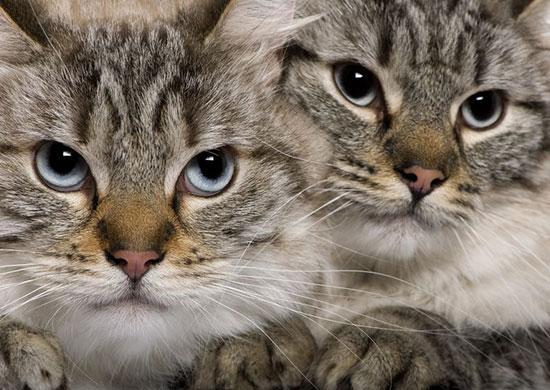
I have two cats with hyperthyroidism. They are both taking methimazole, one at 5 mg and the other at 7 mg. The 7 mg cat had been on 5 mg but the vet increased it when her T4 came back elevated. I've been feeding them a raw cat food diet for about 4 months. I'm feeding her 4 to 6 times a day and she's still goaltending the bowl like never before. Is she not getting enough calories?
As I understand it, the concern you have is that the kitty on the 7 mg dose of methimazole is still goaltending the food bowl. Continued
Answers: Who Are AAFCO and the NRC?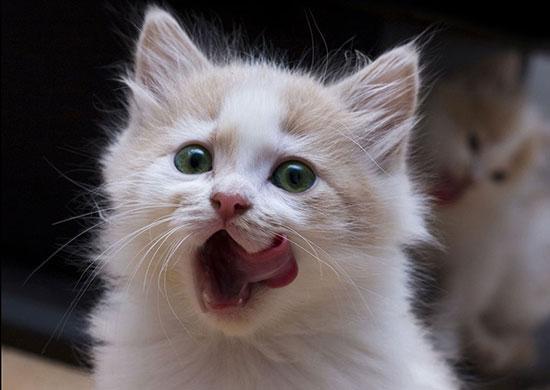
I see lots of references to the AAFCO nutrient requirements on cat food products. I also have seen nutritional requirements put out by the NRC and they seem to be different. What is the role of these two organizations and why are their recommendations different?
Most pet food labels mention the Association of American Feed Control Officials, or AAFCO, nutritional adequacy statement. It is considered to be one of the most important aspects of a dog or cat food label, but it is worth remembering that it is an industry standard and not a scientific standard. Continued
Answers: Taking the Complexity Out of B Vitamins for Cats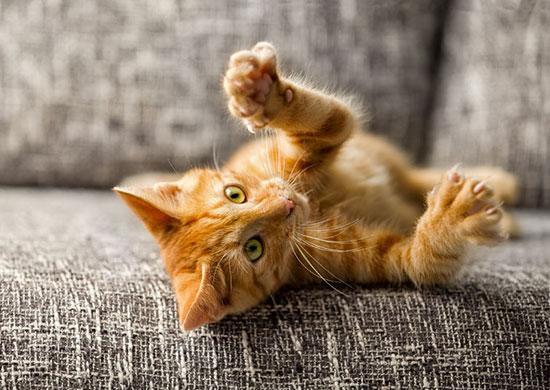
I am confused about B vitamins. Which ones do I need to add to homemade raw cat food? Your recipe says to use a B-complex vitamin, but the ones I look at are all slightly different. What should I be looking for when I buy vitamin B-complex?
B vitamins play a very important role in every cat's life. These water-soluble nutrients are essential for cell metabolism and they are needed for proper growth, development and energy production. As they are water-soluble, they are not stored in the body but are eliminated through urine. Continued
Answers: The Paradox of Prescription Diets for Cats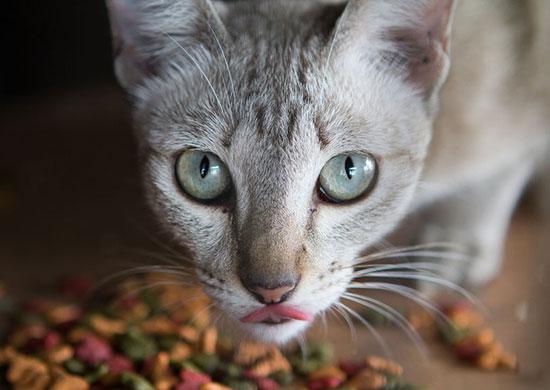
My cat is two years old. I adopted him as a kitten when he was just three months old. Since then, he's been eating only a veterinarian-recommended diet. When he reached his first year of life, he began having urinary issues that finally led him to a blockage. After a long, painful and costly recovery, my vet recommended a prescription diet only, for the rest of his life. He was doing fine and seemed to enjoy his new dry food. Four months later he relapsed and I had to take him to the emergency vet. Why did this happen? Isn't the prescription diet supposed to prevent this? Continued




